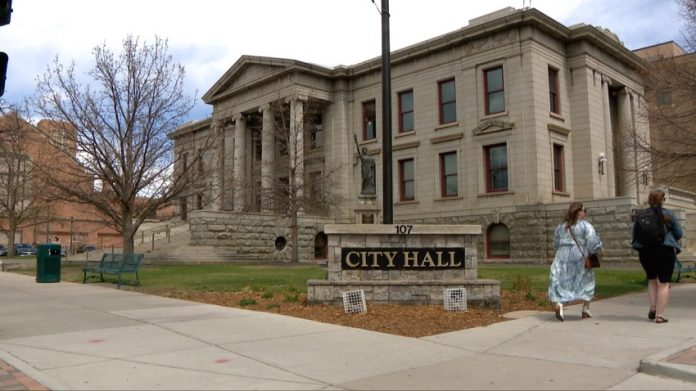COLORADO SPRINGS, CO — In a move aimed at streamlining city council meetings, the Colorado Springs City Council has implemented changes to how and when community members can provide public comment on items not included in the regular agenda. The new rules, which were introduced following the swearing-in of a new slate of council members, have sparked mixed reactions from residents.
Previously, the city council allowed open-ended public comments at the beginning of meetings, typically limited to three minutes per person for a total of one hour. Under the new changes, while the three-minute and one-hour limits remain, public comment will now be moved to the end of the meeting. Additionally, remote testimony will no longer be allowed unless a person requires an accommodation due to a disability.
Council President Lynette Crow-Iverson, elected by her peers last week, explained that the changes were made after receiving significant feedback from constituents. According to Crow-Iverson, many people had expressed a desire for public comment to be scheduled at the end of the meeting rather than at the start, a shift the council has now implemented.
“We’re just trying to be more open to other suggestions, so we did hear it quite a bit in the last two years,” said Crow-Iverson.
Despite this rationale, the changes have not been universally well-received. During the council’s first meeting with the new rules in effect, a group of citizens voiced their concerns, arguing that the changes would limit the public’s ability to speak on important issues not on the agenda. Joe Pelka, a frequent attendee of council meetings and an advocate for the Rockrimmon Library, expressed frustration with the new procedures.
“I was very surprised, being that new council members would do something borderline drastic before their very first meeting,” Pelka said. “They’re always going to talk about representing their constituents and trying to help things out and having transparency. They always speak to that, but none of those things that they’ve done today would be consistent with those thoughts.”
Crow-Iverson responded to criticism by explaining that the changes were designed to make meetings more efficient, ensuring that the council could address agenda items in a timely manner. She emphasized that the previous council had focused on public comment on non-agenda items, but the current council is prioritizing public input related to the issues at hand.
“I think the difference is this council is prioritizing citizen comments on today’s agenda, on the items on our agenda today, where I think the previous council prioritized citizens’ comments, not on today’s agenda,” Crow-Iverson said. “It’s just a balance. You can’t have both. You can’t have hours and hours of both. You’ll never get to your agenda.”
The council plans to give the new public comment procedures a six-month trial period before reassessing their effectiveness. During this time, officials will monitor how the changes impact public participation and meeting efficiency.
As the debate continues, the Colorado Springs City Council faces the challenge of balancing transparency and community engagement with the need for orderly and productive meetings. How the public reacts to these changes in the months ahead will likely influence the future of the council’s approach to public comment.



